2024 Fall Workshop Concurrent Sessions 6
October 31, 2024 | 4:30 PM - 5:20 PM
Accounting Track 6 | Concurrent Session 6A | Concurrent Session 6B
Concurrent Session 6C | Concurrent Session 6D
Accounting Track 6: Everyday Succession Planning - Keeping the Wheels On
Description
Succession planning is important not only for weathering position vacancies, but also retaining current staff by providing a pathway for advancement. This presentation focuses on practices to integrate succession planning into daily work at every level of your accounting and finance functions, including best practices in writing process documentation. It also includes a roundtable section, so we can all learn from each other's experiences.
Learning Objectives
- Learn how to incorporate a succession planning mindset into everyday work
- Explore best practice considerations for process documentation
Speakers
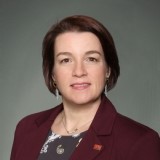 Sarah Loghin, Director, Forvis Mazars Sarah Loghin, Director, Forvis Mazars
Sarah is the Austin/San Antonio market champion of FORVIS’ Nonprofit, Education, & Public Sector Practice and has more than 22 years of experience in nonprofit accounting. She leads consulting engagements regarding financial operations and systems optimization, internal control design and documentation, chart of accounts design, staffing analysis, and policy and procedure development for a variety of nonprofit organizations. She and her team provide periodic accounting services, audit preparation, and other accounting and compliance support to various nonprofit entities. She also assists higher education institutions across the nation with implementation of FORVIS’ Financial & Scenario Modeling tool. Her career experience has centered on nonprofit entities, including 13 years in higher education accounting and finance leadership. Sarah has additional experience providing audit services for a variety of nonprofit entities.Sarah is a member of the American Institute of CPAs, Institute of Management Accountants, Inc. (IMA), and Association of Certified Fraud Examiners, Inc. (ACFE). She holds the Certified Management Accountant (CMA) certification from IMA and the Certified Fraud Examiner (CFE) credential from ACFE. She serves her community through active membership in the Austin Chapter of TXCPA and Social Venture Partners Austin. She frequently presents about audit preparation, risk management, governance relationships, and chart of accounts design for nonprofit entities. Sarah is a summa cum laude graduate of Schreiner University, Kerrville, Texas, with a B.B.A. degree in accounting.
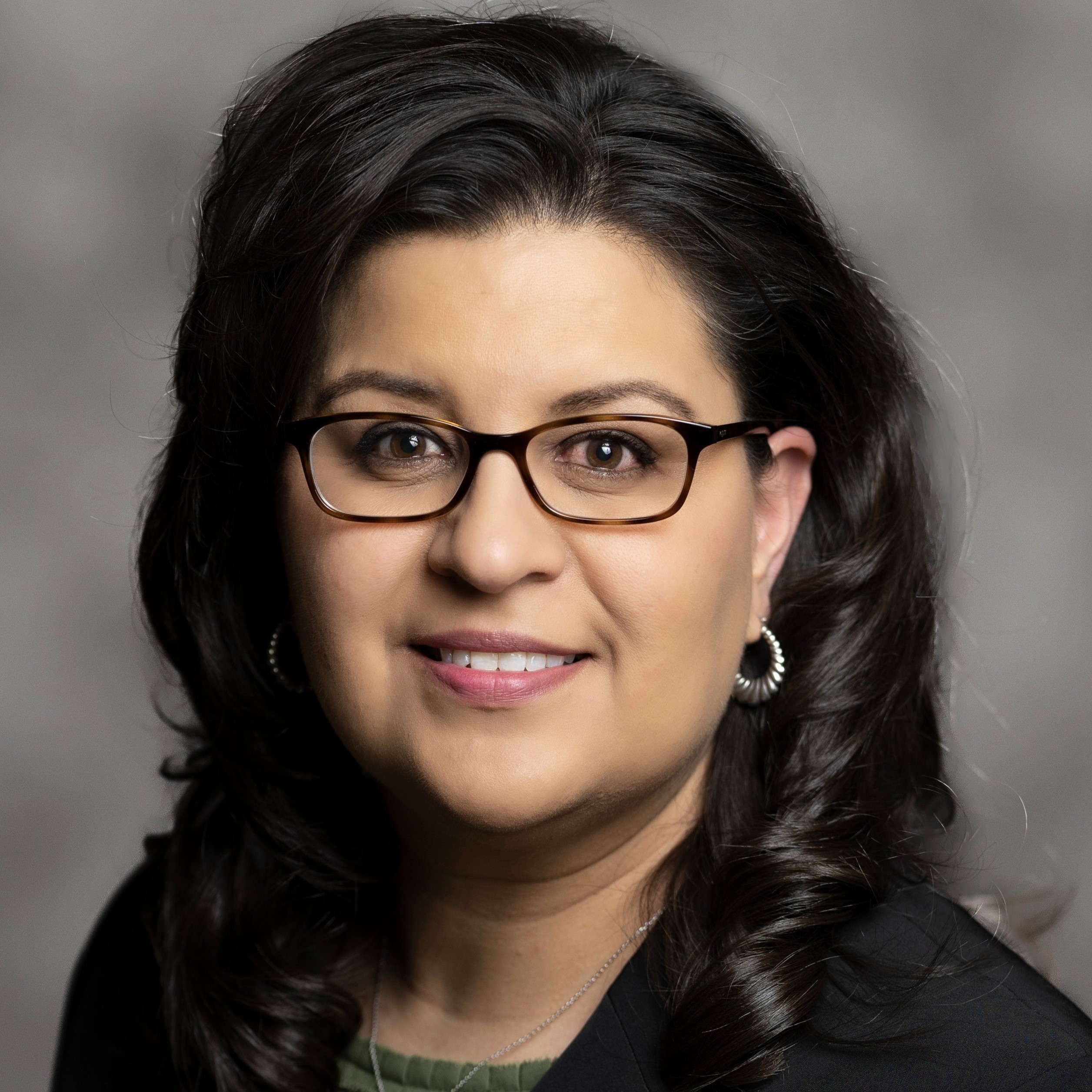 Priscilla Soto, Director, Forvis Mazars Priscilla Soto, Director, Forvis Mazars
Priscilla is a director with Forvis Mazars’ San Antonio nonprofit practice. She has more than 28 years of experience working with charitable organizations, including 16 years in audit and assurance services and 10 years working as a controller and chief financial officer in the industry. She offers advisory and accounting services to various nonprofit organizations, including health and welfare organizations, foundations, private schools, and membership organizations. Priscilla has provided consultancy services for the past two and a half years. Her career experience has focused on nonprofit entities, serving in various accounting and finance roles in museums and health and welfare organizations and includes experience working for a family office. Her experience includes financial statement audits, outsourced accounting functions, operational efficiencies, internal controls, and governance issues. Priscilla is a member of the American Institute of CPAs and TXCPA, where she has served on the executive board as a member and secretary. She currently serves on the Diversity and Inclusiveness and Committee and Chairs the Non-Profit Organizations Conference Committee. In addition, she has previously served in various leadership positions and as president of TXCPA San Antonio and the Texas Tech Alumni Association San Antonio chapter and was a citizen member of the City of San Antonio Audit and Accountability Committee. She is a graduate of Texas Tech University, Lubbock, with a B.B.A. degree in accounting.
Concurrent Session 6A: Shifting Paradigms: The Marriage of Data-Informed Planning and Perf-Based Budget Models
Description
Under a budget model that starved central operations and incented siloed planning and behavior for the schools and colleges, academic planning meetings all too often devolved into budget requests for unit initiatives. Focused on promoting accomplishments while simultaneously lamenting a lack of resources, planning meetings resulted in disparate, disconnected strategies without context. Add to the mix a lack of accountability, units were incented to operate independently and selectively. In this context, the offices of Institutional Planning and Effectiveness and Academic Administration partnered to re-frame planning meetings by connecting data-informed discussions measuring unit contributions to institutional goals with resource allocations. The result was a shift in conversation and planning focused on incenting behaviors and projects that move the needle on critical institutional metrics. Meeting structures were pre-defined through the distribution of performance data measuring school/college contributions to the university's strategic goals. Specific and defined question prompts common across all meetings paired with structured time limits for each topic enforced concise and pointed discussions. Discussants were limited to only the most relevant participants to avoid tangents where possible. Units were required to frame their work as part of the university clearly and concisely for maximum benefit for all. Rather than discussions focused on budget asks, the conversations shifted into strategies and actions focused on outcomes. Shifting the paradigm also laid the groundwork for implementing a refined budget model wherein performance, goals, measurement, and progress in contributing to the whole mattered.
Learning Objectives
- The audience will learn how shifting the paradigm created more productive planning conversation.
- The audience will learn about what sorts of conversations resulted in planning meeting by focusing on data connected to strategic goals and unit contributions.
- The audience will learn how to create fact packs that utilize institutional data connected academic unit performance metrics.
Speakers
 Gesele Durham, Vice Provost, Institutional Effectiveness & Planning, George Mason University Gesele Durham, Vice Provost, Institutional Effectiveness & Planning, George Mason University
Dr. Gesele Durham has been with George Mason University since 2019 and serves as Vice Provost for Institutional Effectiveness and Planning. Her work, and the work of the OIEP team, spans the operations of the university, engaging colleagues in discussion about metrics needed for evaluation and assessment of practice, end-user focused data governance, assessment of student learning outcomes across the curriculum, co-curricular and academic program review, administrative assessment, official accountability reporting, strategic planning, and advanced statistical methods and modelling. Contributing to national conversations on the value and use of assessment and data informed decision-making, she has served as the secretary of the Executive Board for APLU's Commission on Measurement, Information and Analysis and the board for the Voluntary System of Accountability. Engaged with EAB, Gesele served on the Product Advisory Councils for both the Navigate/Student Success Collaborative and the Academic Performance Solutions tool. She also was a member of the Peer Review Corp for the Higher Learning Commission and a mentor for HLC's Persistence and Completion Academy. With a doctoral degree in political science from Binghamton University, her academic career has included serving as faculty at a prestigious, small, public, liberal arts institution, and administrative roles at both a Big 10 R1 institution, and an urban, access R1 institution.
 Renate Guilford, Vice Provost of Academic Administration at George Mason University Renate Guilford, Vice Provost of Academic Administration at George Mason University
Renate Guilford serves as the Vice Provost of Academic Administration at George Mason University. In this role, she is responsible for providing effective and efficient management of institutional resources, activities, and processes for the Office of the Provost. Her portfolio includes resource allocation and alignment, business analyses, modeling, communications, partnership development, and management of the administrative, budget, and personnel operations for the Office of the Provost and the offices for which it has direct oversight. Renate has extensive expertise in all aspects of academic operations and drives critical analysis and planning for several of Mason's strategic initiatives. She has led the Provost's Office in facilitating numerous change initiatives across Mason, including the development of new academic programs, the restructuring of administrative functions, and helping to launch Mason's international campuses and partnerships. She played a key role in establishing the Honors College and continues to support its ongoing success. Renate provides leadership and support to new academic enterprises, research administration, and multiple other efforts within and across Mason's schools and central support units. Renate holds both an undergraduate and graduate degree in Public Administration from George Mason University.
 Stephen McWilliams, Assistant Vice President, George Mason University Stephen McWilliams, Assistant Vice President, George Mason University
Stephen McWilliams, Assistant Vice President, leads the Finance and Planning function for the academic enterprise at George Mason University (GMU). Through a collaborative and consultative approach, Stephen provides leadership to the university's 11 schools/colleges and 8 academic-administrative functions under Provost and Executive Vice President of Academic Affairs. These responsibilities include developing short and long term strategic planning in accordance with academic priorities and objectives, as well as addressing financial opportunities and challenges in partnership with senior leadership.
Stephen has 20 years of finance and leadership experience in both higher-education and private industry. His passion for collaboration and exceptional service were keys to his success at Deloitte and PwC where he worked with a set of global clients. After working in private industry, Stephen shifted to a financial management role at a university in Washington, D.C., where he developed a passion for helping universities attain their financial and strategic goals. Stephen's commitment to higher education also extends to the classroom, where he has taught both Business Management and French as an adjunct faculty member. Stephen holds a MBA with a Finance concentration, as well as a MA in French.
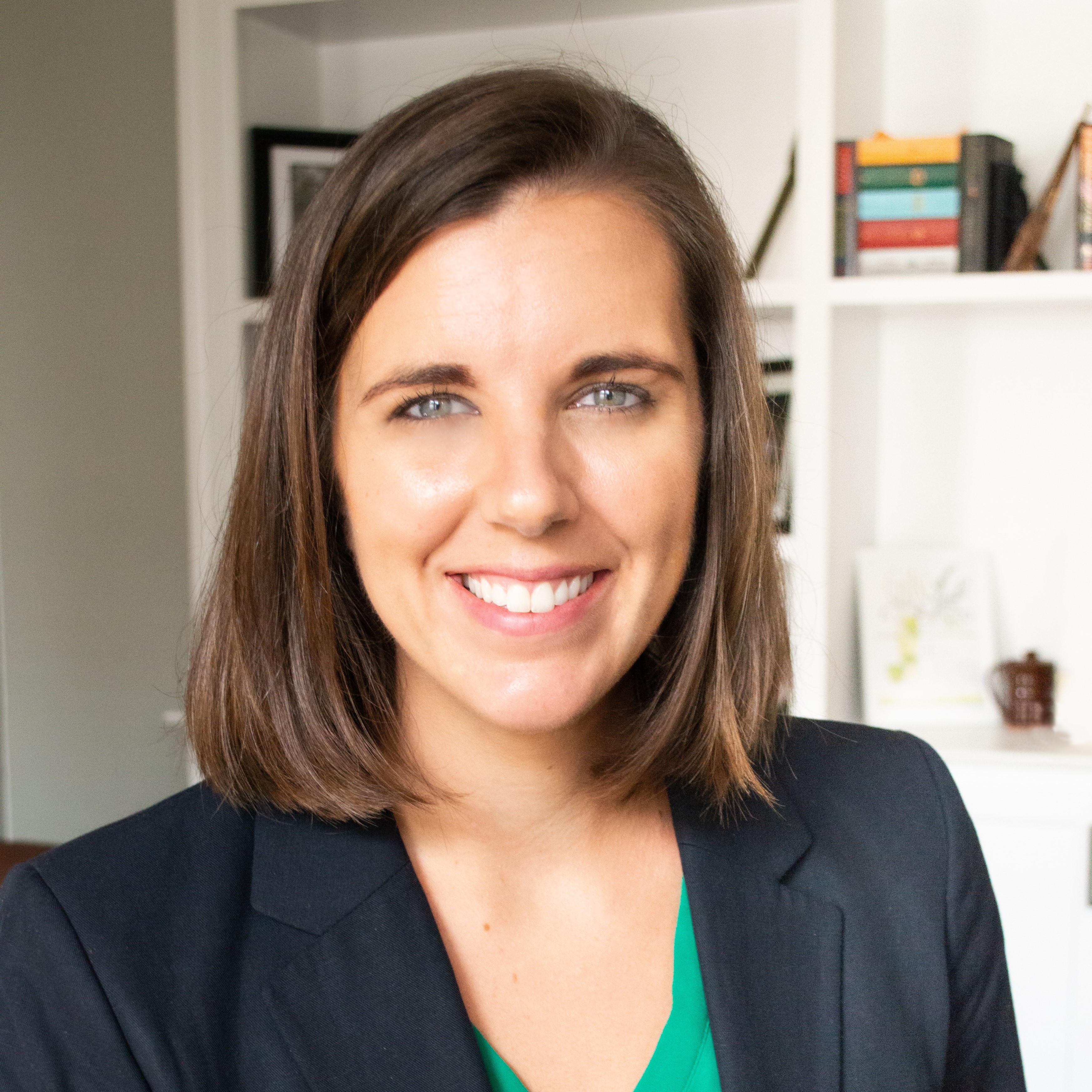 Kaithlyn Kayer, Director of Transformation Management and Operations, George Mason University Kaithlyn Kayer, Director of Transformation Management and Operations, George Mason University
Kaithlyn Kayer joined George Mason University in 2022 and serves as the inaugural Director of Transformation Management and Operations in the Office of the Provost. She leads the Transformation Team, an academic mission-focused, internal support team, specializing in project management, program development, change management, organizational design, and academic technology transformation, charged with developing, fostering, and operationalizing innovation and growth initiatives. Kaithlyn has over 15 years of higher education experience serving in roles within human resources, teaching and learning, faculty affairs, and internal consulting. She is passionate about finding ways to innovate and optimize business and operational practices to best serve the academic mission, keeping students and faculty first. Kaithlyn holds an undergraduate degree from Salve Regina University and a graduate degree from George Washington University.
Concurrent Session 6B: Spooky Lessons From "Going Live": Surviving the Horrors of Implementation
Description
In this presentation, we'll venture into the eerie world of ERP implementation to uncover the spooky lessons learned from past projects. We'll explore the most frequent horrors that haunt ERP projects from the phantom of poor planning to the zombie processes that just won't die. You'll gain insights into avoiding these common traps. We'll provide practical solutions and best practices to banish common challenges and keep your project on track. Additionally, we'll delve into the dark art of change management, highlighting the importance of effectively communicating and training users to ensure smooth adoption and success.Join us for a thrilling ride through the ERP haunted house, where you'll gain valuable knowledge and tools to survive and thrive in your ERP implementation journey.
Learning Objectives
- Identify Common ERP Implementation Pitfalls
- Learn Strategies to Overcome Challenges
- Emphasize the Role of Change Management
Speakers
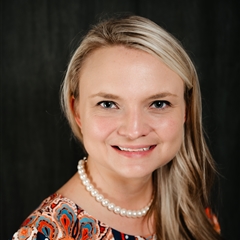 Paige Squires, Director of Budget & Reporting, Campbellsville University Paige Squires, Director of Budget & Reporting, Campbellsville University
Paige Squires serves as the Director of Budget & Reporting for Campbellsville University. She is in her 5th year with the University. She is responsible for overseeing the budget for the University including the Campbellsville University regional centers located across the country. Squires has a Master of Business Administration and Bachelor of Business Administration with an accounting emphasis from Campbellsville University. She is a Certified Public Accountant licensed in Kentucky, along with a Certified Fraud Examiner licensed by the Association of Certified Fraud Examiners.
Concurrent Session 6C: Retaining Your Workforce in Higher Education
Description
Join us for a compelling case study of how Virginia Commonwealth University's Finance Department transformed their workplace culture, achieving dramatic improvements in employee retention and satisfaction. This session dives deep into VCU's successful collaboration with the VCU Human Resources organizational effectiveness consulting team to address challenges such as a perceived staffing shortage and heavy workloads, limited training and career development opportunities and a desire for more connection across finance teams. Together we will explore the key strategies they used to go from a department facing high turnover to one of the highest-rated on university-wide staff surveys, including but not limited to shifting communication tactics to match employee preferences, voluntary job shadowing and cross-training, and manager focus on career development. Walk away with a clear roadmap that you can use to enhance your own team's satisfaction and retention, paving the way for increased effectiveness and institutional support.
Learning Objectives
- After completing this course, you will be able to articulate the key drivers of employee retention and cultural transformation within a university department.
- After completing this course, you will be able to identify strategies to discover and implement retention solutions specific to finance staff in your organization.
- After completing this course, you will be able to make a value pitch to leadership about the effect that organizational effectiveness work can have on the workforce wellness of a finance unit.
Speakers
 Bobbi Gouffon, Director, Organizational Effectiveness, Virginia Commonwealth University Bobbi Gouffon, Director, Organizational Effectiveness, Virginia Commonwealth University
Bobbi Gouffon is the Director of Organizational Effectiveness at Virginia Commonwealth University. She holds a BA in English, Master's of Business Administration (MBA), and is SHRM-SCP and LEAN certified. Throughout her career in human resources and higher education, Bobbi has specialized in many practice areas including HR Services, Employee Relations, Performance Management, Learning and Training and Organizational Development. Outside of work, Bobbi's passion is animal rescue and advocacy. She dedicates her free time to managing her non-profit animal rescue, Mae's Mutts. Bobbi lives in Richmond with her husband and daughter.
 Stephen Barr, Manager of Business Services, Virginia Commonwealth University Stephen Barr, Manager of Business Services, Virginia Commonwealth UniversityStephen Barr manages Business Services at Virginia Commonwealth University (VCU), overseeing essential campus services, including VCU Mail Services, Dining, Retail Stores, and Graduation Regalia. Since joining VCU in 2015, Stephen has played a pivotal role in enhancing the university’s auxiliary operations. These enhancements have not only included improvements in services and campus partnerships but also a strong focus on addressing food insecurity as a key part of his tenure. In 2016, he earned the prestigious Certified Auxiliary Services Professional (CASP) certification from the National Association of College Auxiliary Services (NACAS), underscoring his commitment to excellence in the field. Stephen holds a Bachelor of Arts from the University of New Orleans, a Master of Public Administration from Louisiana State University, and a Doctorate of Education from Virginia Commonwealth University. His educational background reflects his passion for leadership and communication, which he has continuously applied throughout his career. Stephen is active in several organizations and has presented nearly two dozen times at various conferences. Most recently, he served as Past President of the NACAS East Board, having led as President during the 2021-2022 term.
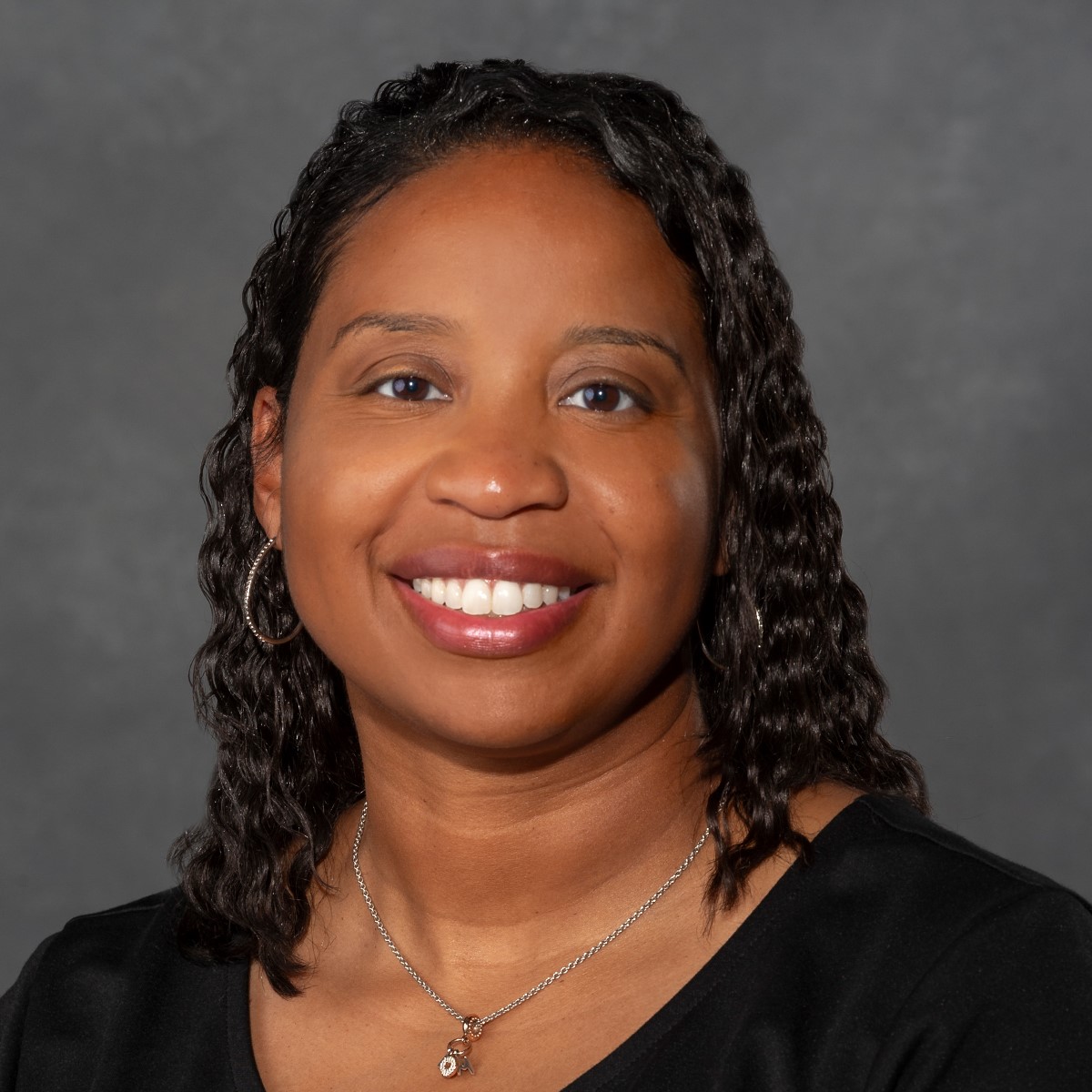 Monica Jackson, Director of Shared Services, Virginia Commonwealth University Monica Jackson, Director of Shared Services, Virginia Commonwealth University
Monica Jackson is the Director of Shared Services at Virginia Commonwealth University. Ms. Jackson has over 20 years of experience in higher education, spanning from audit, budget, and accounting. In her current role, she manages the shared services unit for the University which provides financial services and support to units in Finance and Administration, Equity and Access and Enterprise Marketing and Communications. Ms. Jackson holds a master's degree in public administration.
Concurrent Session 6D: Same, Same, But Different - A System-Wide Digital Transformation With the University of South Carolina
Description
The University of South Carolina System is a collection of 8 universities across 20 locations, ranging in size, resources and processes, but with a common mission of creating bright futures and playing a vital role in the prosperity, health and vibrancy of across the state. Join Tru Consulting and panelists from University of South Carolina system and campuses as we discuss the challenges and benefits of a coordinated transition to a connected planning solution across a variety of use cases, including a focus on RCM.
While the goals remained the same throughout the implementation, each campus presented unique practices and requirements, thus presenting an interesting challenge to maintain standardization and best practices while also ensuring campus end-users were at the forefront of the build. Leveraging the flexibility of Anaplan, Tru Consulting partnered with the campuses and central stakeholders to ensure the transformation didn't leave anyone behind!
Learning Objectives
- Observe the importance of best practices in the core budgeting process, along with the value of flexibility of planning solutions
- Gain insight to the challenges and benefits of a standardized approach across multiple campuses
- Determine the critical differentiators between campuses based on resources, size and complexity
Speakers
 Mela Fezzey, Managing Partner, Anaplan Higher Education, Tru Consulting Mela Fezzey, Managing Partner, Anaplan Higher Education, Tru Consulting
Mela Fezzey is a Managing Partner and CEO with at TruEd Consulting. As a higher education leader with over 30 years’ experience, Mela is passionate about connecting higher education professionals to solutions that help provide clarity to complex issues to operationalize strategic decisions. She enjoys partnering with clients to incorporate proven methods and best practices into their strategic and financial management processes to consistently achieve their goals.
At TruEd, she is focused on delivering excellence throughout the implementation process by
connecting data, people, and plans that are tailored to the needs of the organization. She
develops valuable client relationships and works collaboratively with clients at all levels in
implementing solutions that empower leaders to analyze results, model the future, and
optimize organizational decision making.
Prior to joining TruEd, Ms. Fezzey held a variety of finance and human resources positions during
23 years with the University of California, Riverside (UCR). Most recently, she was the founding
Executive Director of Finance and Business Operations in the UCR School of Medicine. She
provided leadership in the development, oversight, and administration of the medical school and
Health Science’s clinical and academic financial operations including budgeting, financial
modeling and analysis, Academic Affairs and HR, payroll, clinical faculty compensation plan,
revenue planning, sponsored projects, and business operations including procurement, accounts
payables, accounts receivables and clinical collections and billing. While at UCR, Ms. Fezzey
managed an $100M+ annual operating budget and participated in multiple financial and human
resources software implementation projects.
Ms. Fezzey holds an M.A. in Business Management from the University of Redlands and a B.A. in Public Administration from San Diego State University.
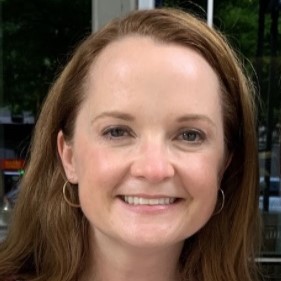 Kelly Epting, Associate Vice President for Finance, University of South Carolina Kelly Epting, Associate Vice President for Finance, University of South Carolina
Kelly Epting, CPA, MBA is the Associate Vice President for Finance and Budget at the University of South Carolina and CFO of the South Carolina Research Foundation. With twenty years in higher education, she currently specializes in university budgeting, planning and analytics. Kelly began her career in auditing with Deloitte. She has a BA in accounting from Furman University and an MBA from the Darla Moore School of Business at the University of South Carolina. She is the current Chair of the Professional Development Committee for SACUBO.
Kevin Russell, University Budget Director, University of South Carolina
Bio coming soon.
|

 Sarah Loghin, Director, Forvis Mazars
Sarah Loghin, Director, Forvis Mazars Priscilla Soto, Director, Forvis Mazars
Priscilla Soto, Director, Forvis Mazars Gesele Durham, Vice Provost, Institutional Effectiveness & Planning, George Mason University
Gesele Durham, Vice Provost, Institutional Effectiveness & Planning, George Mason University Renate Guilford, Vice Provost of Academic Administration at George Mason University
Renate Guilford, Vice Provost of Academic Administration at George Mason University Stephen McWilliams, Assistant Vice President, George Mason University
Stephen McWilliams, Assistant Vice President, George Mason University Kaithlyn Kayer, Director of Transformation Management and Operations, George Mason University
Kaithlyn Kayer, Director of Transformation Management and Operations, George Mason University Paige Squires, Director of Budget & Reporting, Campbellsville University
Paige Squires, Director of Budget & Reporting, Campbellsville University Bobbi Gouffon, Director, Organizational Effectiveness, Virginia Commonwealth University
Bobbi Gouffon, Director, Organizational Effectiveness, Virginia Commonwealth University Stephen Barr, Manager of Business Services, Virginia Commonwealth University
Stephen Barr, Manager of Business Services, Virginia Commonwealth University Monica Jackson, Director of Shared Services, Virginia Commonwealth University
Monica Jackson, Director of Shared Services, Virginia Commonwealth University Mela Fezzey, Managing Partner, Anaplan Higher Education, Tru Consulting
Mela Fezzey, Managing Partner, Anaplan Higher Education, Tru Consulting Kelly Epting, Associate Vice President for Finance, University of South Carolina
Kelly Epting, Associate Vice President for Finance, University of South Carolina